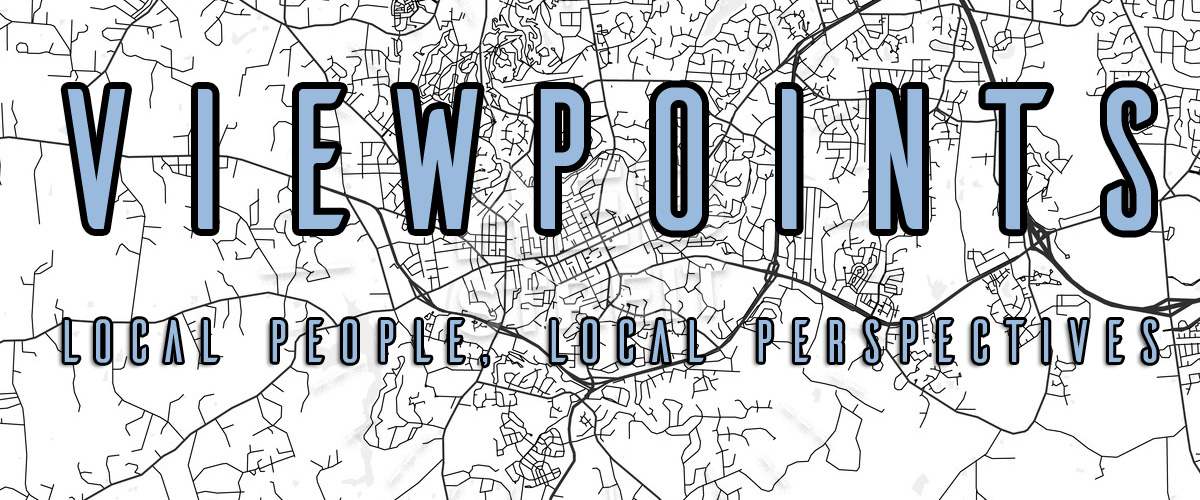
“Viewpoints” is a place on Chapelboro where local people are encouraged to share their unique perspectives on issues affecting our community. If you’d like to contribute a column on an issue you’re concerned about, interesting happenings around town, reflections on local life — or anything else — send a submission to viewpoints@wchl.com
When Asking for Help Leaves You Dead
A perspective from Kacia D. Vines
People with an untreated mental health condition are 16 times more likely to be killed by the police as reported by the Treatment Advocacy Center. Mental health is a public health concern with 1 in 25 Americans living with a severe mental health condition. Although the number of people with a mental illness being killed by police gunfire has been trending downward from 23% in 2015 to 2% in 2021, any preventable death is too many. Eyewitness News 11 in North Carolina (NC) featured a piece, ‘Do I Call Out for Help’ by Samantha Kummerer and Maggie Green whereby in central North Carolina more than one-third (39%) of police officer shootings are in response to someone in mental health distress.
With every public health issue (e.g., climate change, affordable housing, food insecurity, and homelessness), there are trained people with expertise on how to properly ameliorate the problem. Environmentalists work on climate change; Epidemiologists fight viruses; and government officials assure affordable housing. So, why should we entrust police officers whose job it is to maintain public order and safety by enforcing the law, to be skilled to identify and de-escalate someone in mental health crisis? That is not what they trained to do. Why do we keep calling the wrong people [police] for the job? Given that the emergency – a mental crisis – is a health condition. Social workers, crisis management teams, and health professionals are the ones appropriately trained. “Members of law enforcement do not serve as treatment providers for any other illness. It is difficult to imagine subjecting someone having a heart attack to arrest, or someone with cancer being transferred to a specialty center in handcuffs, in the back of a police cruiser. But although severe mental illnesses are brain diseases, we persist in treating their behavioral manifestations as criminal acts.” – Road Runners
The police are “experts” at handling violent and dangerous situations and should not be expected or compelled to being “street corner psychiatrists.” Doing so, ultimately, leads to injury and death and it threatens their own safety. A main task for a police officer should be knowing how to de-escalate situations. But, based on current events, if we can’t entrust police officers to not shoot an unarmed Black man or Black woman who is not in mental crisis, then can we expect them to de-escalate situations involving someone in mental crisis?
Adrian Roberts was a veteran who suffered from post-traumatic stress disorder (PTSD). His wife, Sabara Fisher-Roberts took every precaution to ensure the safety of him, his family, and others. Knowing of the possibility that Adrian’s mental illness could get out of control, she contacted authorities to initiate an order of involuntary commitment of her husband, a legal act that requires hospitalization and monitoring if a person is believed to be a danger to themselves or others. “I didn’t want it to get so out of control,” Fisher-Roberts said. “That was my thing. I didn’t want it to get to a point where it was so out of control. That’s why I reached out for help.” However, that ask for help led to her husband losing his life because the reporting police officers did not know how to properly assess and deescalate Adrian Roberts’s mental health distress. The police officers immediately opened fire on Adrian after seeing a knife in his hands. “It’s a shame that a man who put his life on the line to fight for this country lost his life in his own home because he couldn’t ultimately get the help that he needed,” Fisher-Roberts said. The Fisher-Roberts family had a family advocate to assist Adrian in receiving the help he needed, but Sabara Fisher-Roberts shared that no one listened.
Studies show that de-escalating training works in reducing violent encounters and death. Yet, NC is one of 21 states that don’t require their police officers to undergo de-escalation training. In 2018, NC introduced “de-escalation training as a subtopic of a training module on interacting with individuals with mental illness in the certification training curriculum”, by Yanqi Xu. If we know that de-escalation training can prevent deaths, then why are we still sending police officers unprepared to respond to a mental health crisis whereby their only perceived solution is deadly force? Further, a “Task Force on Policing” by the Washington, D.C.-based Council for Criminal Justice reported that “American police training is too short, uses ineffective teaching methods, and spends too little time on de-escalation, communication skills, problem solving, and scenarios officers are most likely to encounter in the community,” And called for National training standards.
Why waste time, money, and resources for police officers to respond to mental health crisis when capable professionals can properly de-escalate and provide adequate mental health services? The time is overdue for innovative solutions that will save the lives of those experiencing distress from a mental health illness. In the meantime, there may be a shimmer of hope with the State Department of Justice spokesperson Laura Brewer announcing the implementation of de-escalating training in 2022 for individuals with mental health conditions in NC.

“Viewpoints” is a place on Chapelboro where local people are encouraged to share their unique perspectives on issues affecting our community. If you’d like to contribute a column on an issue you’re concerned about, interesting happenings around town, reflections on local life — or anything else — send a submission to viewpoints@wchl.com
Chapelboro.com does not charge subscription fees. You can support local journalism and our mission to serve the community. Contribute today – every single dollar matters.


